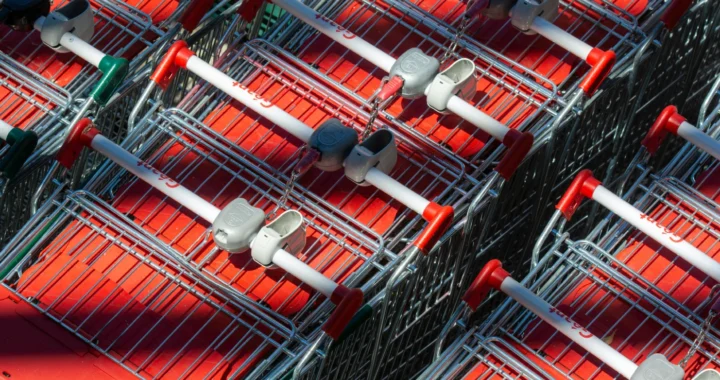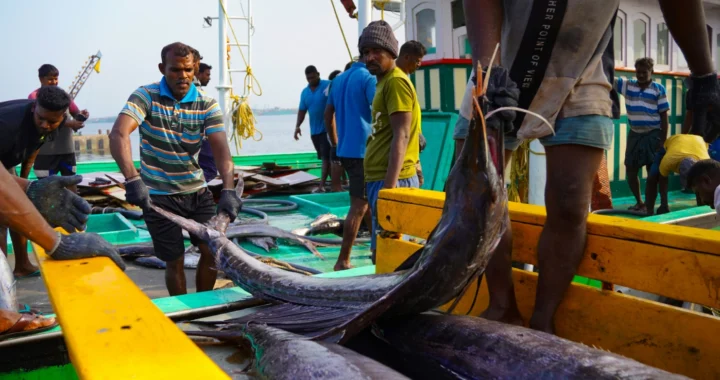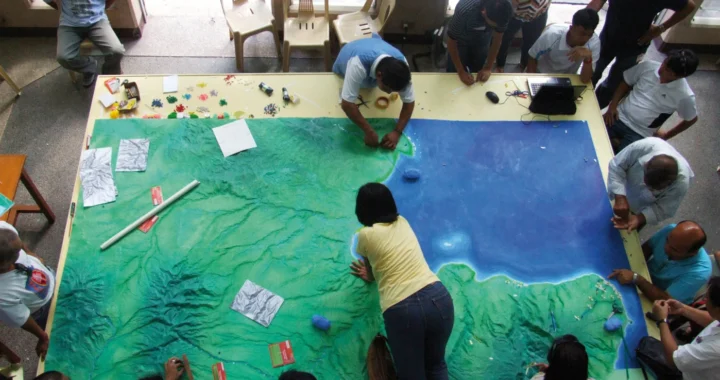An Interview with Sheren Omega, General Manager of Corporate Planning and Sustainability at Gunung Raja Paksi

Sheren Omega, the General Manager of Corporate Planning and Sustainability at Gunung Raja Paksi. | Photo: Gunung Raja Paksi.
Can you tell us about your organization and your current role?
PT Gunung Raja Paksi Tbk (GRP) is one of the largest private steel companies in Indonesia. The company boasts over 50 years of experience in the steel industry, with a production capacity of around 2,2 million tons. Our products are certified by both local and international organizations, including certifications related to the environment, such as the Environmental Product Declaration for some of our products.
In the company, I serve as the General Manager of Corporate Planning and Sustainability. My responsibilities include preparing long-term business and strategy plans, as well as a Sustainability Roadmap and Initiatives. I lead the Sustainability department to ensure the successful implementation of the roadmap and the enhancement of ESG practices within the company. Additionally, I am a member of the IISIA (Indonesian Iron & Steel Industry Association) Department of Energy, Environment & Sustainability Committee for the period of 2021–2025.
What are your corporate sustainability commitments and goals?
At Gunung Raja Paksi, we are deeply committed to addressing sustainability issues, striving to integrate them into every facet of our company’s operations. In October 2022, we launched the ESG Strategy Guidebook, delineating the key steps the company will take to achieve sustainable steel production. Our ESG goals revolve around five pillars:
The first pillar, Responsible Procurement, underscores our commitment to ensuring environmental and social objectives are met throughout the value chain. To gain a comprehensive understanding of our supply chain, Gunung Raja Paksi plans to conduct supplier environmental and social assessments, providing detailed insights into our suppliers’ activities and their adherence to our code of conduct. Similarly, GRP aims to enhance procurement practices by implementing stronger policies and procedures, facilitating a strategic transition in our operating activities and raw material purchases.
The second pillar, Environmental and Social Compliance, emphasizes the importance of complying with regulatory requirements and managing social and environmental issues guided by policies and management systems.
The third pillar, Energy Transition and Low-Carbon Solutions, highlights Gunung Raja Paksi’s strategies to respond to and manage climate-related risks and opportunities throughout the value chain. GRP focuses on understanding the company’s energy usage and emissions, actively working towards Low-Carbon solutions. Additionally, GRP addresses the potential economic risks from climate change-related issues and outlines a risk mitigation strategy.
Contributing to Responsible Environmental Management is the fourth pillar. GRP is dedicated to managing the environmental impacts of our operations with transparency and accountability. Material topics covered in this pillar include Water and Effluents, Waste, and Biodiversity.
The fifth and final pillar is Nurturing Talent, reflecting GRP’s commitment to providing training and investing in our talent to develop human capital and achieve our vision and mission. We believe that by reinforcing our Training and Education initiatives and infrastructure, we can provide a solid foundation for career growth in Gunung Raja Paksi.
Furthermore, following the launch of the ESG Strategy in 2023, we introduced our Net Zero Roadmap, outlining the action plan for achieving carbon neutrality by 2050. Gunung Raja Paksi has identified five main pillars for emissions reduction measures and initiatives:
- Fuel Switching: Transitioning from coal to cleaner energy sources like natural gas.
- Production and Resource Efficiency Improvements: Balancing current steel demand with decarbonizing production processes.
- Green Power Sourcing: Acquiring green energy from the grid or producing it in-house.
- Carbon Offsetting: Investing in projects that offset carbon emissions and benefit the environment.
- Collaboration and Partnership: Working with public and private sector stakeholders to implement solutions for reaching Net Zero.
We believe these efforts align with the industry’s vision for sustainability and support the Government of Indonesia in achieving zero carbon by 2060 or sooner.
What have been your most difficult challenges in achieving those goals?
One of our primary challenges revolves around raising awareness about decarbonization in Indonesia. To address this effectively, we emphasize the importance of tailoring our efforts to the local context. Establishing collaborative partnerships involving government agencies, NGOs, educational institutions, and the private sector plays a crucial role in designing and executing awareness campaigns that resonate with diverse segments of the population.
Economic considerations pose another significant hurdle. The transition to low-carbon technologies initially incurs higher costs for research, development, and implementation, potentially impacting the economic viability and competitiveness of the industry. According to estimates from the International Energy Agency (IEA), the additional cost of production is projected to range between 10% and 50% compared to current levels, surpassing existing production margins. The development and scaling up of innovative technologies, such as direct reduced iron (DRI) and hydrogen-based processes, present technical challenges that need careful navigation.
Additionally, the complexity of our supply chains adds another layer of difficulty. Decarbonization demands coordinated efforts across multiple stages, from raw material sourcing to manufacturing and distribution. Addressing these challenges requires a strategic and collaborative approach, with a focus on overcoming technical barriers, managing economic considerations, and streamlining supply chain processes.
What opportunities do you see to address those challenges?
We are confident that there is still room for development and improvement, ensuring the smooth progression of the steel industry’s decarbonization journey, particularly in Indonesia and Southeast Asia. Collaboration among stakeholders is crucial, involving players in the steel industry like us, government agencies, companies with low-emission steel-related technologies, and non-governmental organizations. This collective effort can guide us towards emission reduction and a transition to green energy, ultimately assisting the government in achieving its net-zero emission target by 2060.
Furthermore, government support can significantly aid the steel industry in Indonesia on its decarbonization journey. For instance, providing incentives for companies that have implemented sustainability in their operational aspects and other related incentives. Similarly, the enforcement of green industry standards and emissions-related regulations should encourage participants in the steel industry to compete in implementing decarbonization measures in their operational aspects.
How do you communicate your corporate sustainability strategy and initiatives to internal and external stakeholders?
We believe that an effective and transparent communication of our corporate sustainability strategy and initiatives is paramount for us, extending to both internal and external stakeholders. Within our organization, we instill a culture of sustainability by seamlessly integrating it into target KPI our business units. This ensures that every team member understands our sustainability goals, thus effectively integrating it into our operational.
For external stakeholders, we employ diverse channels to convey our message. Our corporate website serves as a central repository, offering comprehensive details about our sustainability practices, encompassing our strategy and objectives, and performance metrics. Social media platforms play a crucial role in keeping stakeholders updated on our sustainability efforts, and we actively share relevant our participation in various Focus Group Discussion and Seminars which are held by government agencies (Ministry of Trade, Ministry of Industry and Ministry of Environment and Forestry), NGOs, organizations such as Indonesia Iron and Steel Association and South East Asia Iron and Steel Institute – stakeholders that have the same vision and mission as us.
By adopting a holistic communication approach, both internally and externally, we aim to cultivate trust, showcase accountability, and inspire others to join us on our sustainability journey.
What were the most exciting initiatives and progress that you and your team have done in 2023?
Throughout 2023, our focus on sustainability led to several significant initiatives that highlight our commitment to a greener future.
We started by implementing Rooftop Solar Panels as a renewable energy source (EBT) to support our operational activities in Cikarang Barat. Phase 1 saw the installation of these solar panels in the Forming Service Center area, boasting a capacity of 900 KWp (kilowatt-peak) and the ability to generate an impressive 1,239,068 kWh of electricity annually. Looking ahead, we have ambitious plans to extend this initiative, with a target of installing solar panels totaling 33,000 KWp on the roofs of Gunung Raja Paksi factories, and we anticipate completing this project by 2025.
Additionally, we’ve initiated a technical feasibility study in collaboration with Fortescue, Hatch, and Katalis to explore the usage of green hydrogen. If successful, this could result in Gunung Raja Paksi replacing natural gas at our plant in Cikarang, West Java, paving the way for a more sustainable and inclusive future, with a clear strategy to reduce carbon emissions from the steel industry.
Furthermore, we conducted a comprehensive Life Cycle Analysis (LCA) on several of our products, securing environmental certification in the form of an Environmental Product Declaration (EPD). This milestone positions GGRP as the first steel company to achieve such certification, responding to the export market’s demand for environmentally friendly steel, particularly for green building projects.
Last but not least, our partnership with the Indonesian Nature Conservation Foundation (Yayasan Konservasi Alam Nusantara or YKAN) has allowed us to engage in a multi-stakeholder collaboration aimed at promoting sustainable and responsible forest management. This underlines our commitment to broader environmental stewardship and a holistic approach to sustainability.
What are the lessons you learned from your sustainability efforts in 2023?
The decarbonization of the steel industry, acknowledged as one of the challenging sectors to reform, demands considerable effort and investment across its entire value chain.
Achieving the overarching global goal of net-zero emissions necessitates a steadfast commitment of substantial resources.
A notable takeaway centers around the prospect of integrating circular economy principles. Harmonizing decarbonization initiatives with the ethos of a circular economy, emphasizing the recycling and reuse of steel products, provides a pathway to diminish reliance on raw materials and energy.
Strategic partnerships emerge as pivotal. Collaborating with other industries, technology providers, and governments to engineer sustainable solutions can cultivate a thriving circular economy ecosystem. This collaborative approach amplifies the overall impact of sustainability endeavors.
Moreover, the recognition that positive reputation follows companies at the forefront of decarbonization is paramount. Establishing a reputation as an industry leader committed to responsible practices not only aligns with global sustainability objectives but also positions the company favorably in the business landscape.
What are your plans for sustainability efforts in 2024?
As part of our ongoing efforts to measure and reduce our carbon footprint, we are actively involved in the meticulous process of Scope 3 baselining and boundary setting. By comprehensively assessing and defining the boundaries of our indirect emissions, we aim to gain a holistic understanding of our environmental impact. This initiative will reflect our dedication to addressing the full spectrum of our carbon emissions and furthering our sustainability goals.
Furthermore, recognizing the importance of transparency and informed decision-making, we are aligning our company disclosure with the Task Force on Climate-related Financial Disclosures (TCFD) requirements. This strategic move ensures that our stakeholders receive accurate, consistent, and relevant information regarding the climate-related risks and opportunities associated with our operations. By adhering to TCFD standards, we are enhancing our reporting practices and contributing to a more sustainable and resilient business environment.
Finally, our commitment to sustainable practices extends to obtaining international certifications specific to the steel industry. This proactive step not only demonstrates our dedication to meeting globally recognized sustainability standards but also positions us as a leader in responsible steel production. By engaging in the certification process, we are actively contributing to the transformation of the steel industry towards a more sustainable and environmentally conscious future.
If you were to share advice you learned in your role that may be helpful to your peers and sustainability practitioners around the world, what would that be?
Reflecting on my experiences, I would offer the following advices to my fellow peers and sustainability practitioners:
- Champion Collaboration: Successful sustainability initiatives often stem from collaborative efforts. Forge partnerships across industries, collaborate with technology providers, and engage with governmental bodies. This collective approach significantly amplifies the impact of sustainability efforts.
- Embrace a Long-Term Perspective: Sustainability is not a destination but an ongoing journey. Prioritize enduring goals over immediate gains. This mindset fosters strategic planning and continuous improvement
- Integrate Circular Economy Principles: Weaving circular economy principles into sustainability strategies is paramount. Prioritize practices that emphasize recycling, reusing, and reducing waste to establish a resilient and sustainable system.
- Cultivate Transparent Engagement: Open and honest communication with internal and external stakeholders is crucial. Engage your team, suppliers, customers, and the wider community to build support and understanding for sustainability initiatives.
- Leverage Technological Advancements: Embrace technological innovations aligned with sustainability goals. Whether it’s implementing energy-efficient processes or adopting cutting-edge solutions like green hydrogen, technology serves as a powerful enabler of sustainable practices.
- Pursue Certifications and Global Standards: Strive for certifications and adhere to global standards, such as Environmental Product Declarations (EPDs). These not only validate sustainability efforts but also enhance credibility and competitiveness in the market.
- Educate and Advocate: Be an advocate for sustainability within your organization and across the industry. Share knowledge, experiences, and best practices to contribute to the collective advancement of sustainable practices globally.
- Measure and Report Impact: Implement robust measurement and reporting mechanisms to track the impact of sustainability initiatives. This data serves not only to guide decision-making but also to demonstrate accountability and progress to stakeholders.
- Cultivate a Sustainable Culture: Foster a culture within your organization that values sustainability. From leadership to every employee, instill a sense of responsibility towards sustainable practices, making it an integral part of the organizational ethos.
- Stay Adaptable: The sustainability landscape is ever-evolving. Stay informed about emerging trends, technologies, and best practices. The ability to adapt and evolve is paramount for navigating the dynamic terrain of sustainability.
Editor: Nazalea Kusuma


 Exploring Technological Advancement to Replace Animal Testing
Exploring Technological Advancement to Replace Animal Testing  Addressing Overconsumption for Transformational Changes
Addressing Overconsumption for Transformational Changes  Global Reform on Fisheries Subsidies Signals a Hopeful Shift Toward Ocean Sustainability
Global Reform on Fisheries Subsidies Signals a Hopeful Shift Toward Ocean Sustainability  A Major Cause of Changing Rainfall Patterns
A Major Cause of Changing Rainfall Patterns  Strengthening Disaster Risk Governance at Local Levels
Strengthening Disaster Risk Governance at Local Levels  Recognizing the Role of Local Communities in Biodiversity Conservation
Recognizing the Role of Local Communities in Biodiversity Conservation